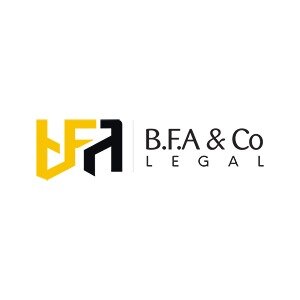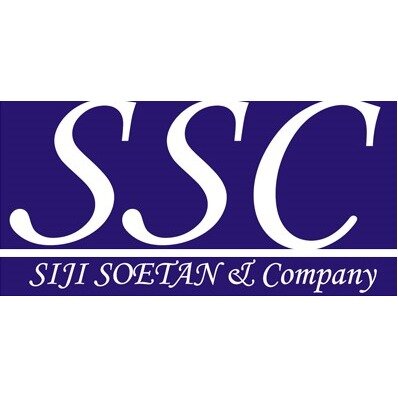Best Trusts Lawyers in Nigeria
Share your needs with us, get contacted by law firms.
Free. Takes 2 min.
Or refine your search by selecting a city:
List of the best lawyers in Nigeria
Nigeria Trusts Legal Questions answered by Lawyers
Browse our 1 legal question about Trusts in Nigeria and read the lawyer answers, or ask your own questions for free.
- Family law - Inheritance
- What is the situation in Nigeria when a brother refuses to share their father's property with a sister just because she is s woman? They are from Imo state
-
Lawyer answer by NARAG LAW OFFICE
For all your legal needs, you can rely on us as your comprehensive legal partner. We specialize in corporate law, offering services such as contract drafting, business formation, and legal counsel for corporate transactions. In the realm of criminal law,...
Read full answer
About Trusts Law in Nigeria
Trusts are a fundamental aspect of wealth management and estate planning worldwide, and Nigeria is no exception. In Nigeria, a trust is a legal arrangement where one party, known as the trustor or settlor, transfers assets to another party, known as the trustee, to manage on behalf of the beneficiaries. The primary piece of legislation governing trusts in Nigeria is the Trustee Act, alongside the relevant common law principles of equity. Trusts can be created for various purposes such as asset management, safeguarding family wealth, and ensuring structured distribution of assets.
Why You May Need a Lawyer
Legal assistance might be crucial for several reasons when dealing with trusts in Nigeria. Some common situations include:
- Creating a Trust: Drafting a legally sound trust deed or will that reflects your intentions and complies with Nigerian law.
- Trust Administration: Managing and administering the trust effectively, including filing taxes, distributing assets, and maintaining records.
- Dispute Resolution: Resolving conflicts among beneficiaries, trustees, or between trustees and beneficiaries.
- Asset Protection: Structuring a trust to protect assets from creditors, or in the event of a divorce or debt claim.
- Updating Trusts: Modifying trust terms as family circumstances or laws change over time.
Local Laws Overview
Nigerian trust law is primarily governed by the Trustee Act, which provides the framework for the creation and management of trusts. Key aspects include:
- Formation: Trusts can be expressed in a written document, typically a trust deed or will, detailing the terms and intentions.
- Types of Trusts: Trusts in Nigeria can be fixed, discretionary, charitable, or constructive. Each type has distinct legal implications and uses.
- Duties of Trustees: Trustees are required to act in good faith and in the best interest of the beneficiaries, adhering to the terms set out in the trust document.
- Beneficiary Rights: Beneficiaries have the right to be informed about the trust and to receive assets as stipulated.
Frequently Asked Questions
What is the minimum age requirement to create a trust in Nigeria?
The trustor must be at least 18 years old, which is the legal age of majority in Nigeria.
Can a trust be revoked or amended after it's created?
The ability to revoke or amend a trust depends on the type of trust. Some trusts are irrevocable, while revocable trusts may be modified according to the trustor's during their lifetime.
Who can be a trustee in Nigeria?
Any individual over 18 or a corporate body can act as a trustee, provided they are capable of managing the trust effectively and following its terms.
What taxes apply to trusts in Nigeria?
Trusts may be subject to income tax, and trustees must report and pay taxes on trust income. Consulting a tax advisor for specifics relating to your trust is advisable.
Can a non-resident be a beneficiary of a Nigerian trust?
Yes, individuals residing outside Nigeria can be beneficiaries of a Nigerian trust.
How are trusts terminated?
Trusts can be terminated when their purpose has been fulfilled, upon the expiration of the trust term, or via court order under certain conditions.
What happens if a trustee breaches their fiduciary duty?
The trustee can be held personally liable for breaches and may have to compensate beneficiaries for any losses resulting from their actions.
Is it mandatory to appoint more than one trustee?
While it's common to have multiple trustees to distribute responsibilities, it is not mandatory, and a single trustee can be appointed.
Do trust deeds require registration?
Trust deeds do not always need to be registered, but it's advisable to do so, especially for land-related trusts, to prevent future disputes.
What legal documents are needed to establish a trust?
Typically, a trust deed outlines the terms and conditions of the trust along with any other documents related to asset transfer to trustees.
Additional Resources
For further guidance, consider the following resources:
- The Nigerian Bar Association: Offers information and access to qualified legal professionals specializing in trust law.
- The Corporate Affairs Commission: Provides essential registry services related to the establishment of trusts and businesses.
- Nigerian Investments Promotion Commission: Can offer advice on trust implications for foreign investors.
Next Steps
If you require legal assistance with trusts in Nigeria, consider the following steps:
- Assess Your Needs: Determine the type of trust services you require, such as drafting, administration, or dispute resolution.
- Consult a Legal Expert: Seek experienced legal counsel familiar with Nigerian trust laws to guide your decisions.
- Document Preparation: Work with your legal advisor to prepare and review necessary documents, ensuring legal compliance and alignment with your intentions.
- Monitoring and Review: Regularly review your trust arrangement to accommodate changes in circumstances or legislation.
Lawzana helps you find the best lawyers and law firms in Nigeria through a curated and pre-screened list of qualified legal professionals. Our platform offers rankings and detailed profiles of attorneys and law firms, allowing you to compare based on practice areas, including Trusts, experience, and client feedback.
Each profile includes a description of the firm's areas of practice, client reviews, team members and partners, year of establishment, spoken languages, office locations, contact information, social media presence, and any published articles or resources. Most firms on our platform speak English and are experienced in both local and international legal matters.
Get a quote from top-rated law firms in Nigeria — quickly, securely, and without unnecessary hassle.
Disclaimer:
The information provided on this page is for general informational purposes only and does not constitute legal advice. While we strive to ensure the accuracy and relevance of the content, legal information may change over time, and interpretations of the law can vary. You should always consult with a qualified legal professional for advice specific to your situation.
We disclaim all liability for actions taken or not taken based on the content of this page. If you believe any information is incorrect or outdated, please contact us, and we will review and update it where appropriate.
Browse trusts law firms by city in Nigeria
Refine your search by selecting a city.

















